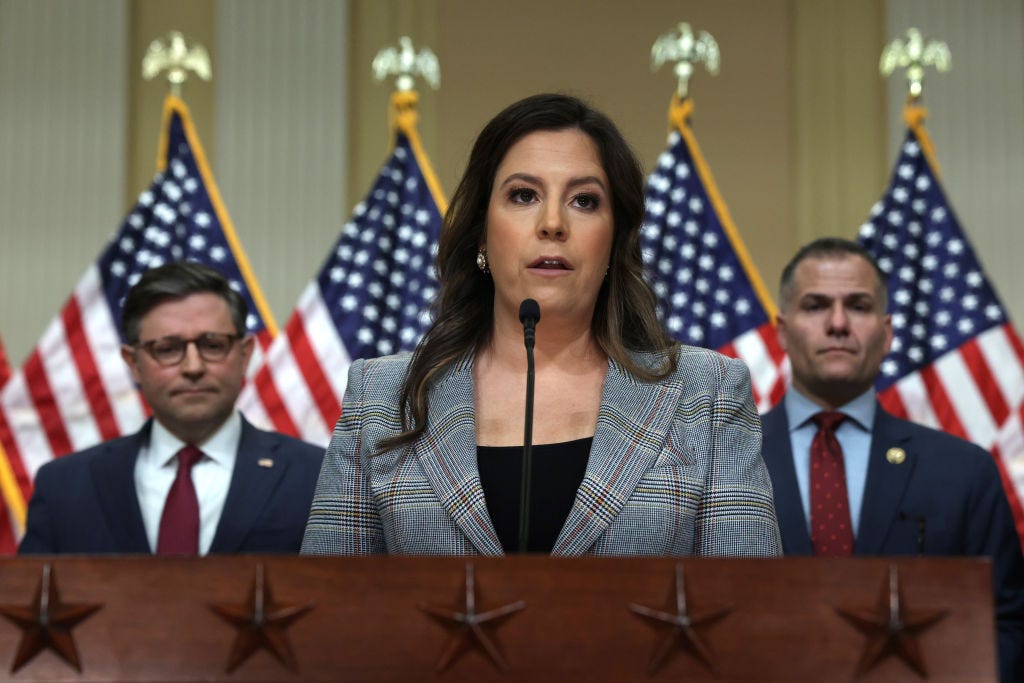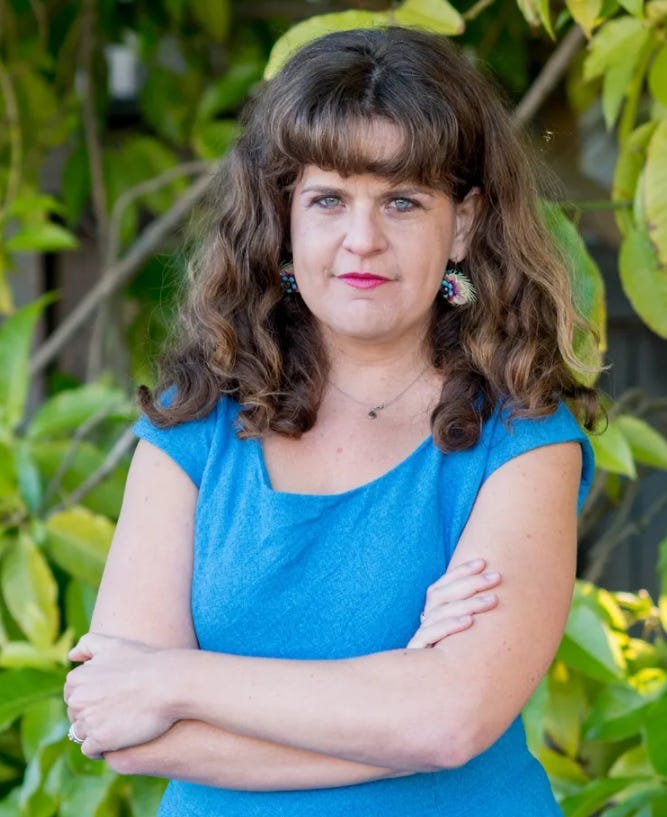ON MESSAGE: How to take off your "It can't happen here" blinders
Anat Shenker-Osorio joins us again to help readers break out of American exceptionalism and understand the real threat of Donald Trump and MAGA Republicans
We told you earlier this week why it’s worth taking Donald Trump both seriously and literally. What’s clear enough if you just stop trying to correct the mangled facts is that his words are the what-you-see-is-what-you’ll-get messaging of a would-be dictator, straight out of the authoritarian playbook.
But even after experiencing Trump’s presidency and the continued chipping away at the systems of laws and norms MAGA Republicans have been pursuing, a surprising number of people still have trouble accepting the threat. Some of them think the system will just hold, somehow. Others maintain a surprisingly deep faith in checks and balances. Or they’re still stuck on “it can’t happen here.”
It’s hard to break out of these perspectives, and to accept that serious threats to democracy are indeed real things that happen in these United States.
Messaging guru Anat Shenker-Osorio is here to help, and she suggests that the problem begins in the deep-seated human need to believe in the logic of the systems that govern their reality, and once they’re invested in something, it’s very hard to get them to see otherwise. Especially when that involves convincing them that they live in a place like any other.
Want to hear more about Anat’s fascinating work? Check out the third season of Words to Win By, her excellent podcast exploring the role of political messaging in the fight for change. All episodes of the third season are now available via your favorite podcast app.
Even after everything that’s happened so far, why don’t people seem to take the idea that Trump and MAGA Republicans are a serious threat? Why is it so difficult to convince people that it can happen here?
There is a very basic human need — in fact, it’s so basic that it's been studied extensively — to think that things happen for a reason. There's a NYU psychologist named John Jost, who has written about it extensively, he calls it “system justification theory.” Sorry to get all academic on you.
So system justification theory is what the name sounds like — it’s the idea behind statements like: “what needs to happen will happen,” or “things happen for a reason,” or “there's order to the universe.” The idea that there is logic, at a really high level, that explains what’s going on, and that you can rely on. And for many people, there's a huge religious overlay, as you can probably imagine.
But in the realm of politics, at the nation-state level, it's extraordinary, the need that people have to believe that everything’s running totally normally, no matter what’s going on. Democracy will persist because it has so far. That we haven't jumped the shark.
Figure out what you believe — and why
So here’s an example. When Trump was first elected — it may even have been when he was running — my husband, who’s from Honduras and lived his whole life there until we moved here to marry in our early, early 20s, he said to me very calmly, “Oh, we should go to the ATM and take out a bunch of cash, and hide some cash in different places.”
And I was like, “Why…why would we hide cash places?”
Now the thing is, I already know that you're supposed to do that in an emergency. That's part of earthquake preparedness. It shows you how prepared we are for earthquakes. You're supposed to make sure you have cash around because earthquakes will derail the electrical grid and the ATM network, and you're not going to be able to get money out. Pardon the aside, but, anyway, that's just my earthquake tip for your California readers. Bottled water and cash.
Anyway, he says, “Oh… well, whenever there's a coup, one of the first things that happens is there's a run on the banks.”
This is all said very calmly like, “Did you buy milk for the kids?” And I say to him, “This is 2016, right? There's not going to be a coup.”
And he says, “Why not?”
And he says, “Coups are things that happen in places where people live, and this is a place where people live.”
Get outside of American exceptionalism





